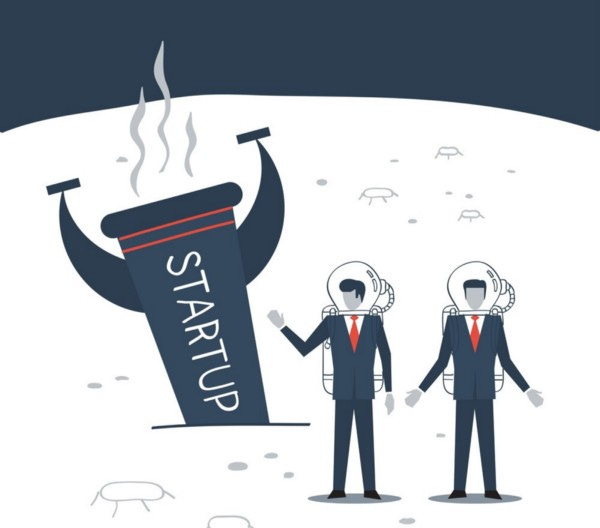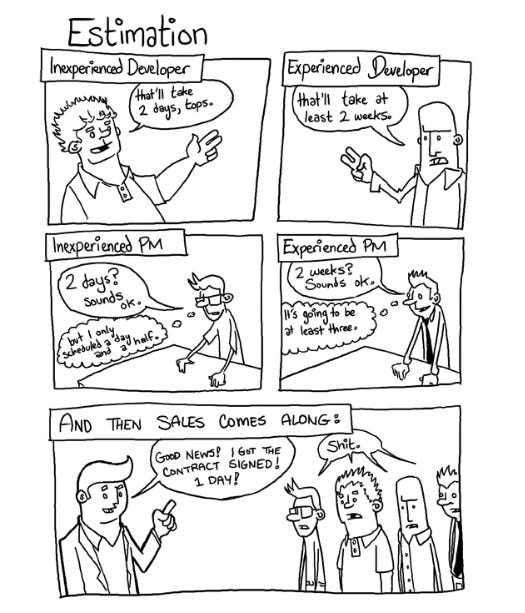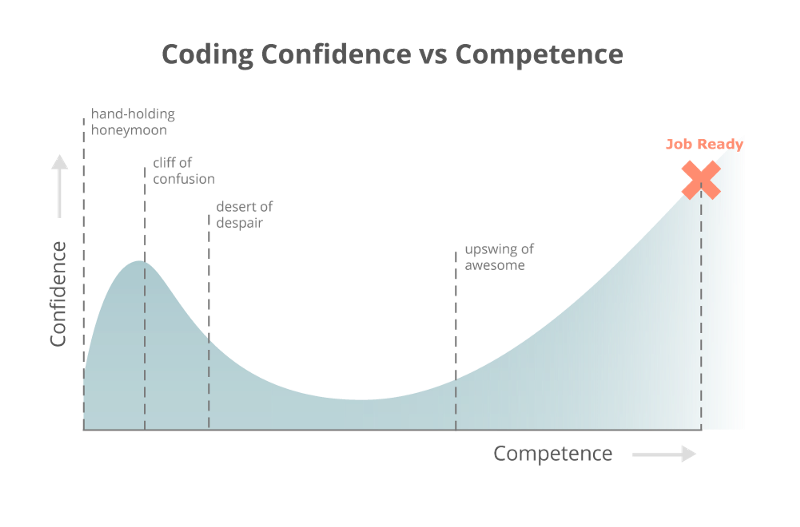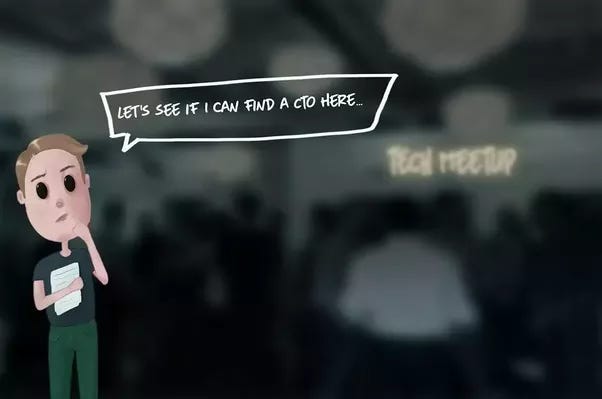Non-tech Founders Still Have a Chance if They Avoid These 8 Mistakes.
The reason behind failure of 99% startups by non-tech founders.
The reason behind failure of 99% startups by non-tech founders.

1999 was one of the biggest years in the music industry. For the first time, music lovers could listen to their favorite songs on the internet. History was created. Tim Westergren, founder of Pandora changed the music industry forever. He was a musician who followed his passion without knowing anything about tech.
But isn’t that what all success stories have in common — a person with crazy zeal to solve a problem he/she is obsessed with.
His idea gave birth to a new category of music streaming that’s now worth billions of dollars.

Bottomline: You don’t have to be a techie to build a disruptive tech startup. The only thing that matters is your belief and passion to solve a problem. That’s it.
Brian Chesky of AirBnB (which disrupted the hotel industry), Michael Dell of Dell (which disrupted computers), Yancey Stickler of Kickstarter (which disrupted fundraising), Reid Hoffman of LinkedIn, Evan Sharp of Pinterest…they’ve all done it. The list is endless.
At Indiez, we’ve spoken to 600+ founders from 20 different countries and we know that these founders are onto something amazing.
Best part is — they are just as unstoppable even if they don’t know anything about tech. Their passion for solving a problem is just incredible!

But, let’s face it…entrepreneurship is hard. Anyone who tells you otherwise is lying to you.
Startups are born and die. Every single day. Thousands of them.
There’ll be days when you will find yourself broken. On top of it, not having a tech background can make it even more challenging.
90% of founders quit in such scenarios. But the other 10% go on to change the world.
After closely watching 100's of startups by non-tech founders, here are our learnings about some common mistakes.
This is a genuine request to startup founders to avoid these obvious mistakes.
I urge you to check if you are making any of these and then take time to make them right!
Stop for once. Rethink and re-calibrate, you still have time to crack the nutshell and change the world.
So, here it goes —
1. Hiring the cheapest available developers

Problem -
Founders usually don’t want to invest money on development during the initial phase of the start-up, so they look for cheap solutions. Some even hire developers from platforms like Fiverr or Upwork for as cheap as 10$/hour.
But think about the kind of MVP such developers build. Is it even impressive?
Let me tell you what a bad code looks like. It’s a recursive loop of bugs, which means when something is solved, another thing breaks.
Bottomline is, if your developer sucks, your product will suck. And no one will use a buggy product, so forget about paying for it!
If it sucks, it won’t sell. To win in this competitive market, you have to WOW your users.
Solution -
A good engineer always tests their product themselves and writes a very clean code. So don’t compromise on this.
If you are not best equipped to understand the skills required from your developer, get them interviewed by an expert. You can find such experts on Codementor.
Go deep into their past work experience to understand what they can do. Hackerank is a good place to find qualified developers, too.
Also, go deeper into their past work experiences. Ask the right questions about their previous projects — How did you build it? What tech did you use? Why did you use that tech? What was the key challenge? How much time did it take? How would you rate the code quality? How easy is it for you to change something in the code?
That was actually a huge reason we started Indiez. We want to encourage companies to find the best talent to create their MVP, so they build a strong foundation for success in the future.
2. Micro-managing engineers
Problem -
Setting unachievable deadlines, bringing in urgent tasks out of nowhere all the time, constantly asking for an update — these are some things that engineers hate.
Micro-management is bad.
As a founder, you will always have high expectations and huge targets to meet. But don’t let that drive you and your tech team crazy!
Understand that development takes time. You don’t understand technology like they do.
Your constant need for control might even reduce their efficiency.

Solution -
Communication is the key.
Set up a process of daily stand-ups and weekly meetings. Stay updated with last day’s tasks, the current challenges and milestones of the day. Make use of tools like Asana, Trello, Basecamp, Jira, Zeplin etc.
Let the developers take ownership and be accountable for reaching milestones. Trust them and understand that development is a creative and experimental process.
Don’t stand behind them, breathing on their necks to make things happen.
Also if things get super hard to manage, consider hiring an experienced project manager to lead the project.
3. Learning to code
Problem -
Given the complexities of hiring/managing a developer, some founders are tempted to learn coding. The problem with that is — coding isn’t for everyone.
Thinking of learning to code to build your own product might be a big mistake and a waste of time that would be better invested on other important things. As an entrepreneur your job is to figure out money, customers, team, product, and an endless array of other problems that need a solution.
Solution -
Understand that you can only learn to code if you have the right aptitude and strong interest in it.
To build your product, you need someone who can handle complexities. Either hire someone or outsource to IT companies (look at Clutch.co) or platforms like Indiez for this.
But do understand the basics. There are many great resources online and I recommend starting with Stanford University’s Computer Science 101 course. Also, here’s a small useful write-up to understand back-end concepts. Also, there’s a blog by Intercom to understand basics of tech to communicate better with team.

4. Hiring those who don’t share a belief in the vision
Problem —
A successful startup is created by a team of people who are willing to go out of their way, to solve problems and to come up with ideas.
So, hiring solely on the basis of skill won’t match up to expectations.
Don’t hire someone to just write the code for you. They should care about what you are building and the problem you’re solving.
If they don’t connect with your vision, they won’t stick with you in the bad times. And for startups, the bad times are all the time.
Solution —
Plan long term. Hire someone who’s excited about what you’re building. When you hire people with the same beliefs as you, they fight tooth and nail for the cause you’re both there for.
And that’s what really drives success in a startup. How to check for belief? Ask them why they want to join your team. Do they have a similar experience in the industry? What’s their vision of the industry?
5. I’ll find a tech co-founder to build it for free
Problem —
Do you think that finding a technical co-founder is the best solution to build your product? Thinking of offering equity in return for getting a product built for free?
If yes, then press the brakes because you can’t rush into something like this!
Consider what happens when that partnership doesn’t work out so well, or if the co-founder doesn’t share the same vision or isn’t passionate enough. You’d be in a muddle!
Solution —
A tech company does need a CTO, but that’s not the first thing to run after.
Think of finding your ideal CTO as something similar to finding your life partner. Ditch haste or your temptation to save money, and see if it’s a good match first!
Build the first version and then start pitching to potential tech co-founders. Spend time with them, work with them and only then make a decision! Andrew Chen wrote a wonderful blog on finding a tech co-founder.

6. Being at the high-level
Problem —
Do you assume that you’re communicating well with the team and then disappointed when you see the end result?
When it comes to building a product, you can’t be vague in describing what you want. Your communication needs to be on point, detailed, and clear.
Vague sketches, design mockups copied from other apps, not defining user journeys — are all inefficient ways to communicate with your team.
Solution —
You don’t need to be a tech expert to write good user stories that make the development task easy. Here’s one guide to writing user stories that may help. And here’s an example of project documentation created prior to development. These may seem cumbersome to manage, but in the long run, they set processes that help in avoiding technical debt.
Use tools like Proto.io and Zeplin to create wireframes and mockups.

7. Thinking you’re at a loss
Problem —
Just because there’s huge dependency on the developers/tech team to build your product, you may feel like you’re at a loss. After all, they are the ones building the IP. Right?
Wrong.
Solution —
Your skills as a founder — your ability to sell the vision, to get the first paying customers, to build and scale a team — are equally important. Never think you are at a loss, and take control of things so that you’re never in a compromising spot.
Always own the code and make sure you have access to all your databases/accounts. Get a Github account yourself and ask the developers to commit to that account. Same thing with AWS (Servers) and other accounts.
8. Hiring only one developer
Problem —
You’d think that hiring one great developer is an easy way to reach your goal with little effort: you save on costs, and the results meet your expectations.
But it’s risky to have all your eggs in one basket!
Not only that, the sole developer also deals with a multitude of tasks, excessive tiredness and is at a greater risk of burn out.
Solution —
One solution is to hire a second developer, if you can afford it. It speeds up your development, enhances the team spirit, and eliminates dependency to an extent.
Another solution is to start working with an external agency/partners to build your tech. This way, you need not deal with the hassles of deciding how many resources are needed or managing them in the early days.
Are any of these mistakes hindering you from reaching your goals? You’re the best person to decide.
Making mistakes is a part of any growth process. However, it’s best to identify them early and correct them. That being said, the only way to get things done is to get started! You ready?
Now go out there. Take that plunge, take that leap of faith.
If you want a problem to be solved, there’s no reason why you can’t solve it.
Your passion and belief to build your idea are central to everything you’re doing. Learn from the data, and move on.
Now go build awesome. 🙌



